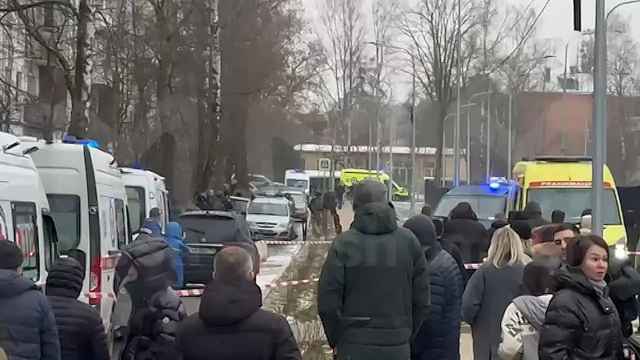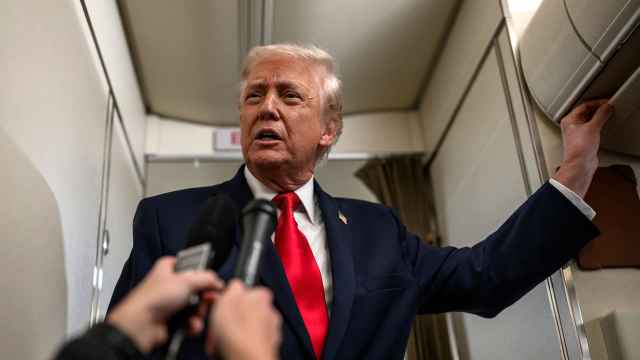NOVO-OGARYOVO, Moscow Region — Volunteer economic experts advising the government clashed with a senior official for the first time Tuesday, when Central Bank Chairman Sergei Ignatyev scoffed at their idea of preserving a budget deficit to finance investment.
Vladimir Mau, one of the leading experts the government asked to review its long-term development strategy, proposed allowing a deficit of 2 percent to 4 percent of gross domestic product over the next 10 years as a way to increase state spending on roads and stimulate high-tech industries.
The government could borrow money at home and abroad or raise taxes, he said at a meeting of several leading experts, along with Prime Minister Vladimir Putin, other Cabinet officials and Ignatyev at Putin's residence outside Moscow.
The option, first voiced by the Economic Development Ministry, has been a point of contention in the Cabinet for a while now. It has drawn sharp criticism from Finance Minister Alexei Kudrin, whose goal is for the budget to run a zero deficit in 2015.
The input from the experts — which at this point is just initial analysis that will morph into more definite conclusions later this year — could be a factor that will sway the balance.
Ignatyev attempted to strike down the pro-deficit idea, sparking a heated debate.
"I believe it would be absolutely wrong," he said. "We need to plan for a zero deficit."
As justification, he pointed to Russia's dependence on revenues from oil and gas exports in a world where prices for these energy resources may drop sharply, extending any budget gap to unmanageable proportions.
Also, excessive borrowing by the state, he said, would reduce market liquidity and cause rates to go up in what would stymie lending to private businesses and ultimately slow down the economy.
"We need to be more conservative and more responsible," he said.
Mau, the director of the Russian Academy of Economy and State Service, said a deficit wouldn't pose much of a risk if the government had the Reserve Fund growing. With a national debt burden now only at 10 percent of GDP, the country could safely increase it to 25 percent, he said.
Putin and Economic Development Minister Elvira Nabiullina spoke negatively about the option of raising taxes at the meeting. Nabiullina reiterated her support for a budget deficit after 2015.
"I propose to reject dogmas," she said.
In an apparent attempt to lace the debate with some humor, Putin chose Yaroslav Kuzminov, director of the Higher School of Economics, to speak after Nabiullina, asking him to agree or disagree with the minister, who also happens to be Kuzminov's wife. After a burst of laughter, Kuzminov diplomatically said experts were considering various options.
There was another jocular moment when Kuzminov had to respond to Putin's doubts about the sincerity with which employers answered questions about how much they paid to illegal migrants in a survey that Kuzminov cited.
"Sociologists don't ask questions pointblank," Kuzminov said, continuing unambiguously. "There are methods that make a person speak candidly."
Realizing that he said this to former KGB officer Putin, he and the others around the table laughed again.
"What goes around comes around," Putin said jokingly.
A Message from The Moscow Times:
Dear readers,
We are facing unprecedented challenges. Russia's Prosecutor General's Office has designated The Moscow Times as an "undesirable" organization, criminalizing our work and putting our staff at risk of prosecution. This follows our earlier unjust labeling as a "foreign agent."
These actions are direct attempts to silence independent journalism in Russia. The authorities claim our work "discredits the decisions of the Russian leadership." We see things differently: we strive to provide accurate, unbiased reporting on Russia.
We, the journalists of The Moscow Times, refuse to be silenced. But to continue our work, we need your help.
Your support, no matter how small, makes a world of difference. If you can, please support us monthly starting from just $2. It's quick to set up, and every contribution makes a significant impact.
By supporting The Moscow Times, you're defending open, independent journalism in the face of repression. Thank you for standing with us.
Remind me later.





